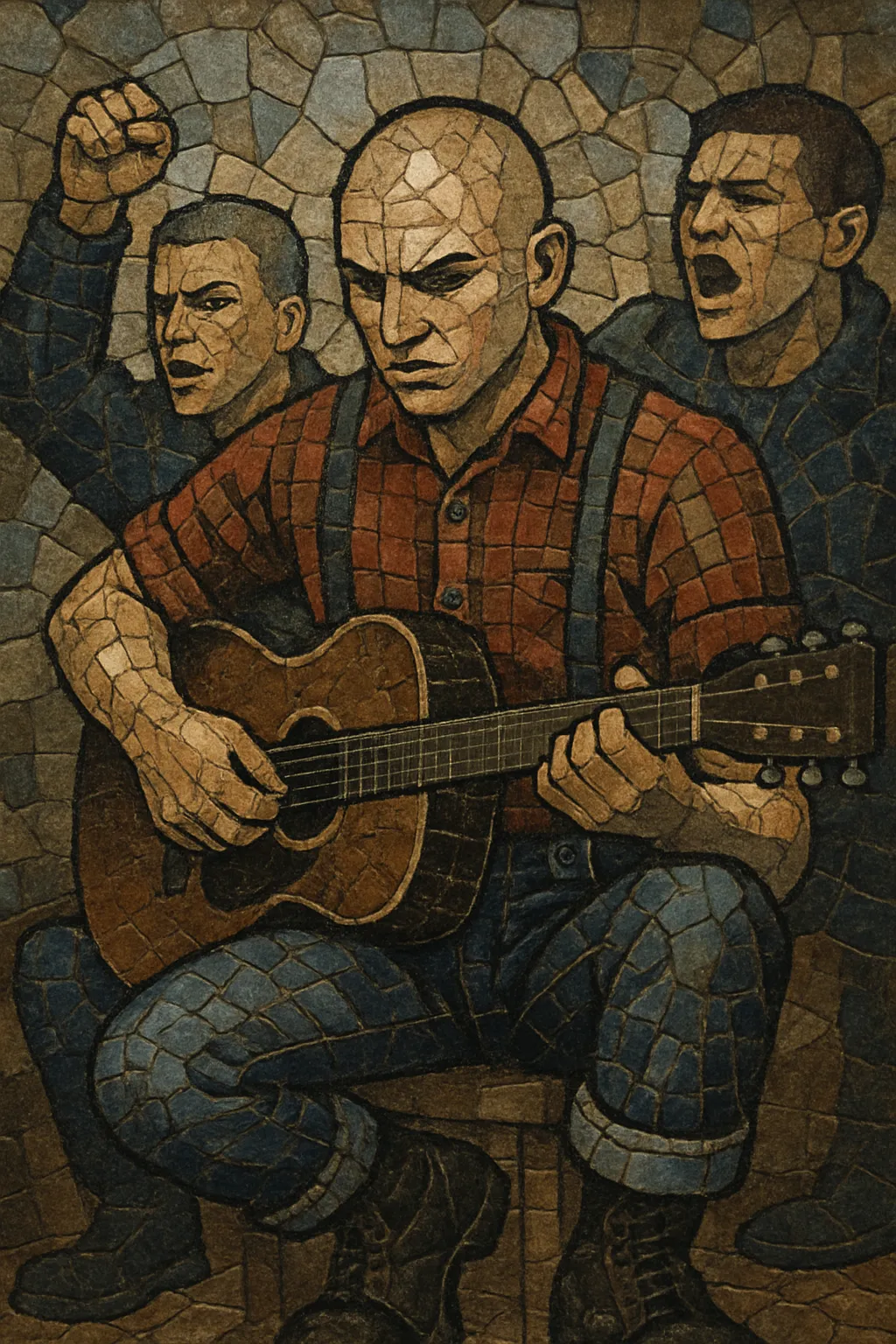Oi is a raw, working‑class strain of British punk rock characterized by chant‑along choruses, mid‑to‑fast tempos, and direct, street‑level lyrics.
Emerging at the turn of the 1980s, it sought to reconnect punk with its original audience—punks, skinheads, and football supporters—by emphasizing community, solidarity, and everyday struggles over art‑school pretensions.
Musically, Oi favors power‑chord riffs, simple song structures, gang vocals, and anthemic hooks that translate easily to live singalongs.
Oi coalesced in late‑1970s England as a reaction to the commercial and arty turns some punk scenes were taking. Journalists (notably Garry Bushell in Sounds) popularized the term “Oi!”—a Cockney exclamation heard in songs and on terraces—to describe bands channeling the grit of working‑class life. Early standard‑bearers included Cock Sparrer, Sham 69, and Cockney Rejects, who blended first‑wave punk energy with pub rock directness and terrace‑style chant vocals.
Compilation albums such as Oi! The Album (1980) and Strength Thru Oi! (1981) helped codify the style, introducing a roster that included The 4‑Skins, Angelic Upstarts, The Business, and Blitz. The music spotlighted tight, mid‑to‑fast tempos, big gang choruses, and songs about work, boredom, community pride, and opposition to authority. High‑profile gigs and media attention grew alongside controversy around violence at shows and attempts by far‑right groups to co‑opt parts of the audience—pushback also came from strongly anti‑racist Oi bands and fans.
Incidents around shows (including Southall, 1981) brought negative press and venue wariness, contributing to a dip in mainstream visibility. Musically, Oi fed into the harder, faster UK82 wave and early hardcore punk, while many acts continued recording and touring on independent labels.
The 1990s saw significant revivals across Europe, North America, and Latin America, with new bands adopting the chant‑heavy, boots‑and‑braces aesthetic while often foregrounding anti‑racist, anti‑fascist stances. Today, Oi remains an international scene, sustaining festivals, zines, and labels, and informing street punk, skate punk, and aspects of ska punk.


